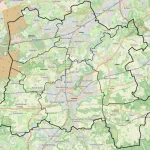Will the Real Fibre Optic Broadband Service Please Stand Up
When is a “fibre optic” broadband service not fibre optic? The answer might seem obvious but if so then it’s not something that the industry appears keen to respect. But just what does the term fibre optic actually mean and why are ISPs so eager to use and in some cases abuse it.
The use of common terminology, such as “broadband”, to describe internet connectivity is both useful and fraught with difficulties because of the way in which everybody can choose to define the same thing differently. We explored this problem in detail with our 2010 article – The Definition of UK Superfast Next Generation Broadband.
Advertisement
But the term “fibre optic” is different from traditional service separators like “super-fast broadband”, “ultra-fast”, “hyper-fast” or possibly even “mega-awesome-lolcat-fast” because it defines a very specific kind of cable and thus, one would hope, should not be as open to misrepresentation. Think you know what fibre optic means? Think again.
What is a Fibre Optic Cable?
Hopefully by now most of you should know that fibre optic cables are made of glass (silica) or plastic, which allow information to be transmitted in the form of light; usually via a low powered laser beam. At its most simple this is a bit like using a torch to send an SOS message to your friend next door, except the light would be going down a cable. It’s simple, fast and the cable itself is incredibly cheap to make.
Naturally this makes optical cables the ideal choice for a new generation of communication services, especially broadband connections with their ever growing capacity demands. Indeed not a month seems to go by without somebody finding a new way to push increasingly incredible amounts of data down a single fibre, such as by splitting light into different wavelengths or twisting it into a vortex.
Suffice to say that using light as a transmission method is massively more efficient than sending electrical signals down old copper wires (e.g. ADSL), which is still the most dominant and traditional way of delivering telephone and internet access services. Unfortunately copper lines are considerably more susceptible to interference and signal degradation over distance, which often makes them slow and unreliable (especially if you live a long way from your telephone exchange).
Advertisement
Mark is a professional technology writer, IT consultant and computer engineer from Dorset (England), he also founded ISPreview in 1999 and enjoys analysing the latest telecoms and broadband developments. Find me on X (Twitter), Mastodon, Facebook, BlueSky, Threads.net and Linkedin.
« Happy New Year 2013 from the ISPreview.co.uk Team

















































Comments are closed